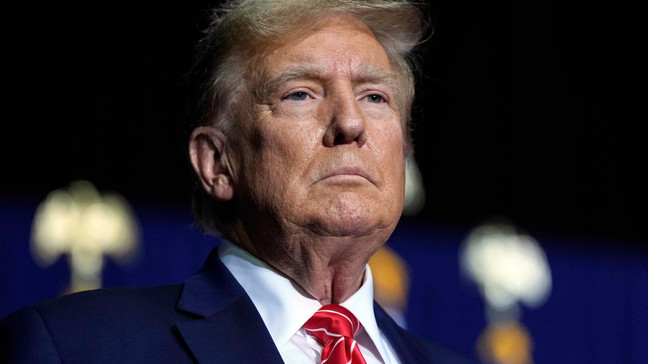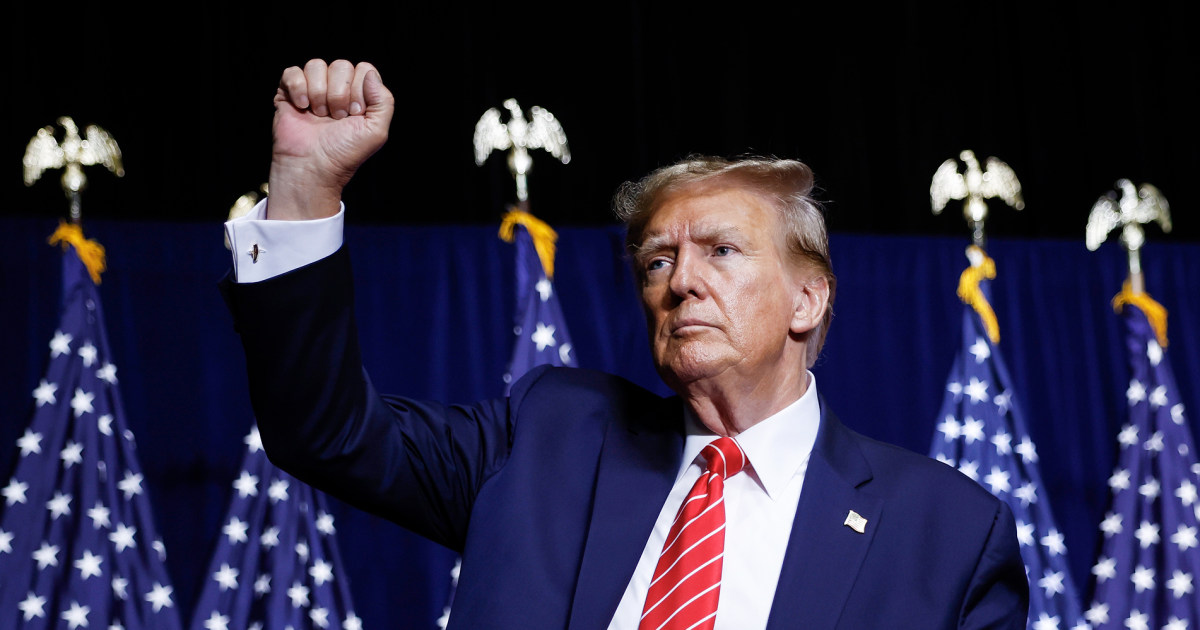Former President Donald Trump has clinched enough delegates to secure the Republican presidential nomination for the upcoming 2024 election, according to projections from NBC News. This sets the stage for a rematch between Trump and President Joe Biden, who earlier on Tuesday was projected by NBC News to have secured the Democratic nomination.
Trump entered Tuesday’s primary contests in Georgia, Hawaii, Mississippi, and Washington as the presumptive nominee after successfully defeating all his primary opponents. In contrast, Biden faced minimal opposition in his primary races. Former United Nations Ambassador Nikki Haley withdrew from the Republican nomination race last week following her victory in just one state on Super Tuesday.
With projected wins on Tuesday night, Trump surpassed the 1,215-delegate threshold required for a majority at the GOP’s July convention in Milwaukee. These delegates will be bound by party rules to support him, despite facing multiple impending court cases.

Donald Trump (Credits: KIMA)
The general election begins with Biden’s favorability ratings dipping below 40% in recent polls, trailing behind Trump, who also remains unpopular. While Biden led Trump in most major polls in 2020, recent polls suggest a close race or a slight edge for Trump, with concerns raised by voters regarding Biden’s age and Trump’s legal issues.
While Biden faced minimal opposition within the Democratic Party, Trump dominated a crowded Republican primary field that included several notable politicians. Winning all but two contests, Trump maintained his stronghold on the Republican electorate.
Prominent figures like former New Jersey Gov. Chris Christie, Arkansas Gov. Asa Hutchinson, and former Rep. Will Hurd of Texas, who criticized Trump, failed to gain traction. Meanwhile, those attempting to emulate Trump’s approach, such as Florida Gov. Ron DeSantis and businessman Vivek Ramaswamy, struggled to break his grip on the party.
Former Vice President Mike Pence found himself unable to step out of Trump’s shadow and failed to appeal to Trump supporters after his refusal to block the certification of the 2020 election results on Jan. 6, 2021.
Haley’s campaign attracted Republican voters seeking a departure from Trump, but her anti-Trump stance led to a decline in overall support among Republican voters.
Throughout the primary race, it appeared as though there were two parallel GOP contests: one dominated by Trump and another with the remaining candidates vying for a distant second place.
Initially, some Republicans believed Trump could be defeated. DeSantis briefly led Trump in hypothetical one-on-one contests, banking on his popularity in the GOP. However, DeSantis’ campaign faltered under early attacks from the Trump camp, leading to questions about strategy and finances.
While Haley’s campaign gained momentum, she struggled to resonate with Republican voters and relied heavily on support from independents and Democrats in states allowing them to participate in GOP nominating contests.
Despite facing legal challenges and controversies, Trump maintained his hold on the GOP primary electorate. His victories in key states, coupled with the support of the Republican National Committee, solidified his position as the party’s nominee for the 2024 presidential election.
Trump’s preferred candidates, Michael Whatley and Lara Trump, assumed leadership roles within the RNC, reaffirming his influence over the Republican Party as its presidential nominee.























